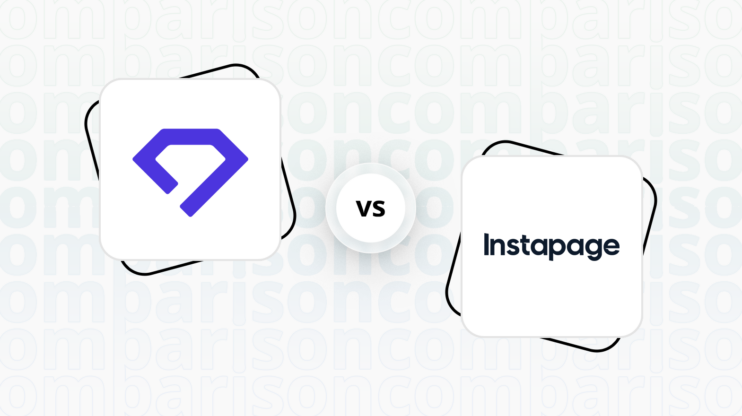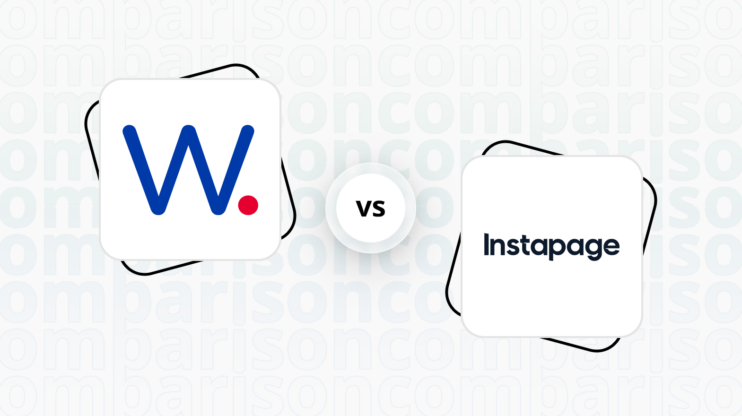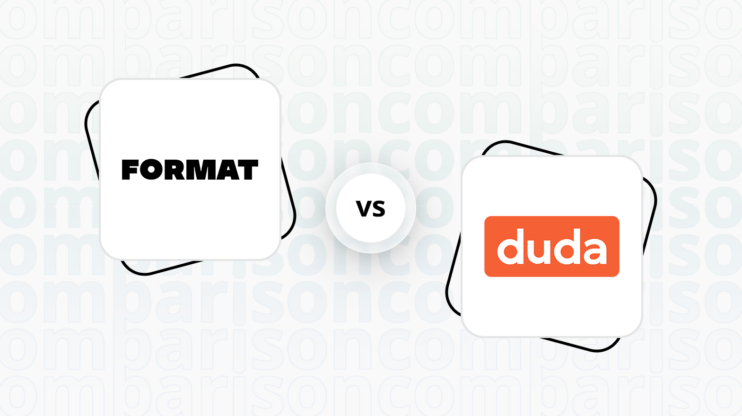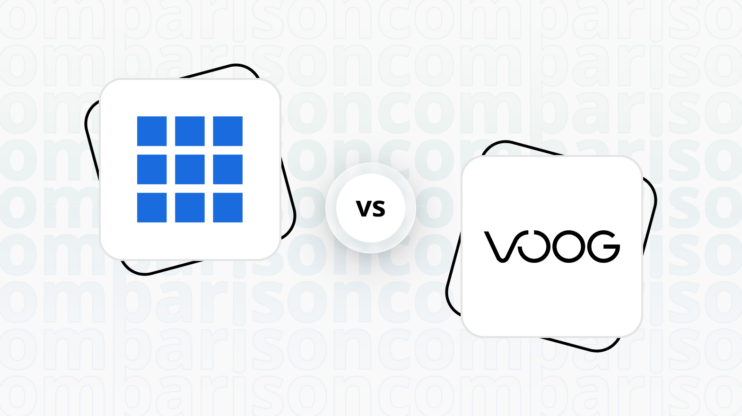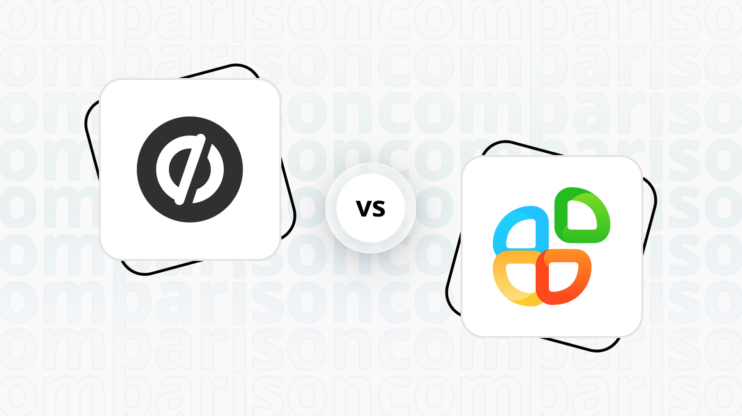Final verdict
Tilda and Instapage both offer unique strengths, making them suitable for different types of users and projects.
-
Tilda (Overall Grade: 6.7/10)
is a versatile website builder ideal for bloggers, small businesses, and digital marketers. It excels in design functionalities and templates, offering a wide range of pre-designed blocks and customization options. Tilda’s ecommerce capabilities are comprehensive, making it a solid choice for those looking to create visually appealing and professional websites with integrated ecommerce features. However, it falls slightly short in ease of use and customer support compared to Instapage. -
Instapage (Overall Grade: 6.6/10)
is a powerful landing page platform focused on improving advertising conversion through personalization and optimization. It stands out with its ease of use, AI capabilities, and advanced marketing features, making it perfect for businesses aiming to optimize their landing pages for higher conversions. While Instapage’s ecommerce capabilities are limited, its robust customer support and comprehensive security measures make it a reliable choice for creating high-performing landing pages.

|

|
|
|---|---|---|
|
Design functionalities & templates |
8.6 |
8.0 |
|
Ease of use |
8.0 |
8.5 |
|
Ecommerce |
7.2 |
4.2 |
|
Website Editors |
8.0 |
7.5 |
|
Product testing options |
5.9 |
6.1 |
|
Price |
8.0 |
7.0 |
|
Hosting quality |
6.2 |
6.0 |
|
Website speed optimization |
4.9 |
6.2 |
|
Plugins/extensions and integrations |
7.6 |
6.8 |
|
Marketing features |
6.9 |
7.7 |
|
Customer support |
5.5 |
7.6 |
|
Website security |
7.6 |
8.4 |
|
AI capabilities |
2.1 |
6.0 |
|
User Management |
7.3 |
7.3 |
| Overall |
6.7 |
6.6 |
Best for ecommerce
 7.2
7.2
 4.2
4.2
Verdict
: Tilda is more suited for ecommerce with its comprehensive features, while Instapage is limited in this area, focusing more on landing page optimization.
-
Tilda
: Tilda offers a robust set of ecommerce tools, including product catalogs, inventory management, and various payment gateways. It is ideal for small businesses and digital marketers looking to create visually appealing online stores without coding. When comparing Tilda vs Instapage, Tilda clearly stands out for its ecommerce capabilities. -
Instapage
: Instapage is primarily a landing page builder with limited ecommerce functionalities, mainly through Shopify integration. It excels in landing page optimization and targeted messaging but falls short in providing a full-fledged ecommerce solution.
Best for informational & business websites
 8.4
8.4
 7.9
7.9
Verdict
: Tilda is the better choice for creating visually appealing and professional-looking informational websites, while Instapage excels in ease of use and customer support.
-
Tilda
: Tilda scores 8.4 for informational business websites, making it a strong contender for creating visually appealing and professional-looking sites. It offers a wide range of pre-designed blocks and templates, focusing on typography and visual content. Tilda is suitable for bloggers, small businesses, and digital marketers who want to create stunning websites without coding skills. Its versatility and integration with various services make it a comprehensive tool for managing online projects. -
Instapage
: Instapage scores 7.9, making it a solid option for landing pages and marketing-focused websites. It offers tools for personalization, optimization, and testing, aimed at improving advertising conversion. Instapage is known for its ease of use, with an intuitive drag-and-drop interface and seamless integration with marketing tools. It is ideal for small teams and businesses looking to execute marketing campaigns efficiently. When comparing Tilda vs Instapage, Instapage stands out for its user-friendly interface and robust customer support.
Detailed comparison
Design functionalities & templates
Design FunctionalitiesRepresents how well each platform allows for creative design and customization of websites.Score Components:
- Template Variety (30%): Range and quality of design templates.
- Customization (30%): Flexibility and options for design alterations.
- User Interface (20%): Ease and intuitiveness of the design process.
- Responsiveness (10%): Adaptability to different devices and screen sizes.
- Innovation (10%): Unique design features and tools.
 8.6
8.6
 8.0
8.0
🏆
Winner: Tilda.
Tilda offers a wider range of design functionalities and templates, making it a more versatile choice for users who want to create visually appealing and professional-looking websites.
Tilda offers a diverse selection of design templates that are suitable for various types of content, all crafted by professional designers. These templates emphasize gorgeous typography, minimalist blocks, and striking images. Users have the flexibility to modify any template significantly or even start from scratch, ensuring the final website can meet a wide range of design preferences and requirements.
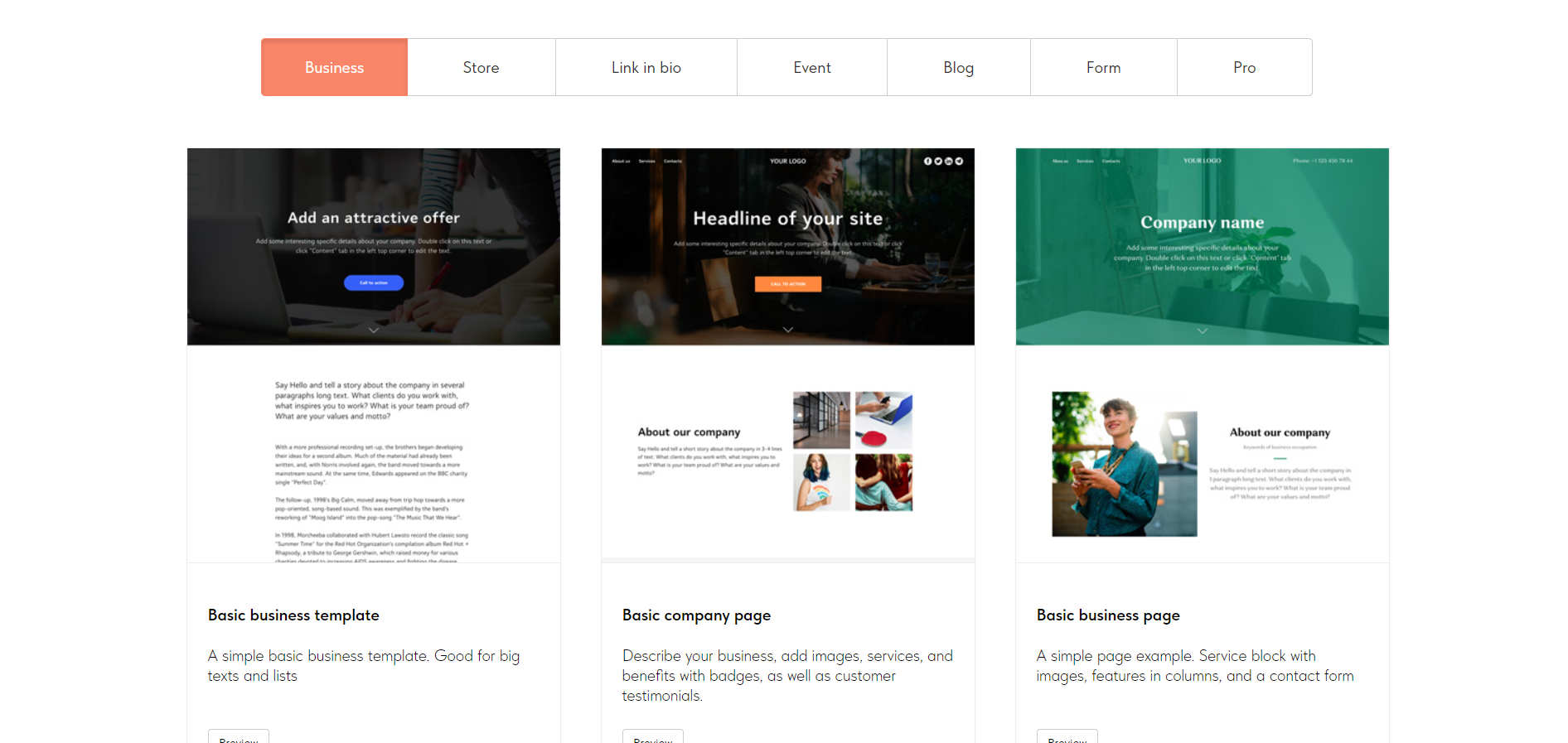
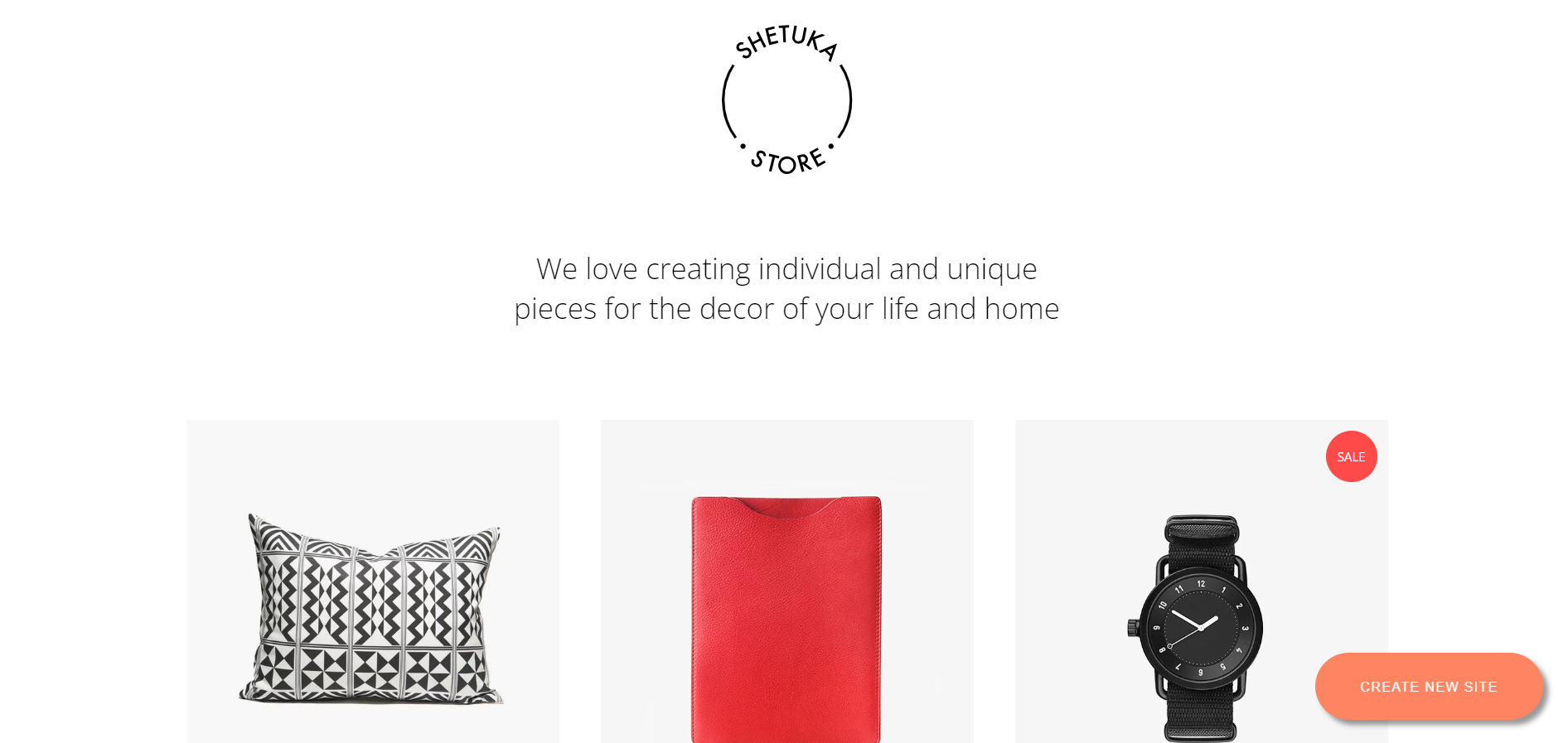
On the other hand, Instapage provides an extensive collection of 100+ design templates for website building, business-specific templates. These templates are tailored to support small teams and businesses in executing their marketing campaigns efficiently, including features for marketing automation, CRM, and analytics integrations.
Get a head start on website creation with AI
Create a custom website tailored to your business needs 10X faster with 10Web AI Website Builder!
Ease of use
Ease of useReflects the platform’s overall user-friendliness.Score
Components:
- Learning curve (40%): Quickness and ease of getting started.
- Interface design (30%): Simplicity and intuitiveness of layout.
- User guidance (20%): Quality of tutorials and support.
- Flexibility (10%): Adaptability to various user skills.
 8.0
8.0
 8.5
8.5
🏆 Winner: Instapage
. Scoring 8.5, Instapage edges out Tilda, which scored 8.0, in terms of ease of use. Both platforms offer user-friendly interfaces and a range of features, but Instapage’s intuitive drag-and-drop interface and seamless integration with various marketing tools make it slightly easier to use.
Learning Resources
🏆 Winner: Instapage
. Both Tilda and Instapage offer comprehensive learning resources, but Instapage’s resources are more organized and user-friendly, making it easier for users to find the information they need.
For ecommerce
EcommerceMeasures the platform’s effectiveness in supporting online business activities.Score Components:
- Ecommerce themes and templates (20%): Variety and design of templates.
- Product management (25%): Ease of managing and organizing products.
- Payment options (25%): Variety and convenience of payment methods.
- Ecommerce features (20%): Features for managing an ecommerce store.
- Integration (10%): Compatibility with external e-commerce tools and services.
 7.2
7.2
 4.2
4.2
Tilda and Instapage offer different levels of ecommerce capabilities. Tilda is a more comprehensive ecommerce platform, offering features like product catalogs, inventory management, payment gateways integration, shipping options, order management, and built-in CRM and marketing tools. On the other hand, Instapage is primarily a landing page builder with limited ecommerce capabilities, mainly through integration with Shopify.

|

|
|
|---|---|---|
|
Ecommerce themes and templates |
6.5 |
0.0 |
|
Product page customization |
7.0 |
0.0 |
|
Payment processing and commissions |
7.5 |
5.0 |
|
POS capabilities |
0.0 |
0.0 |
|
Payment gateways |
7.8 |
6.0 |
|
Product numbers |
6.0 |
0.0 |
|
Additional ecommerce features |
6.5 |
4.0 |
Tilda ecommerce features:
- Product Catalogs and Inventory management
- Payment Gateways integration
- Shipping options
- Order management
- Built-in CRM and marketing tools
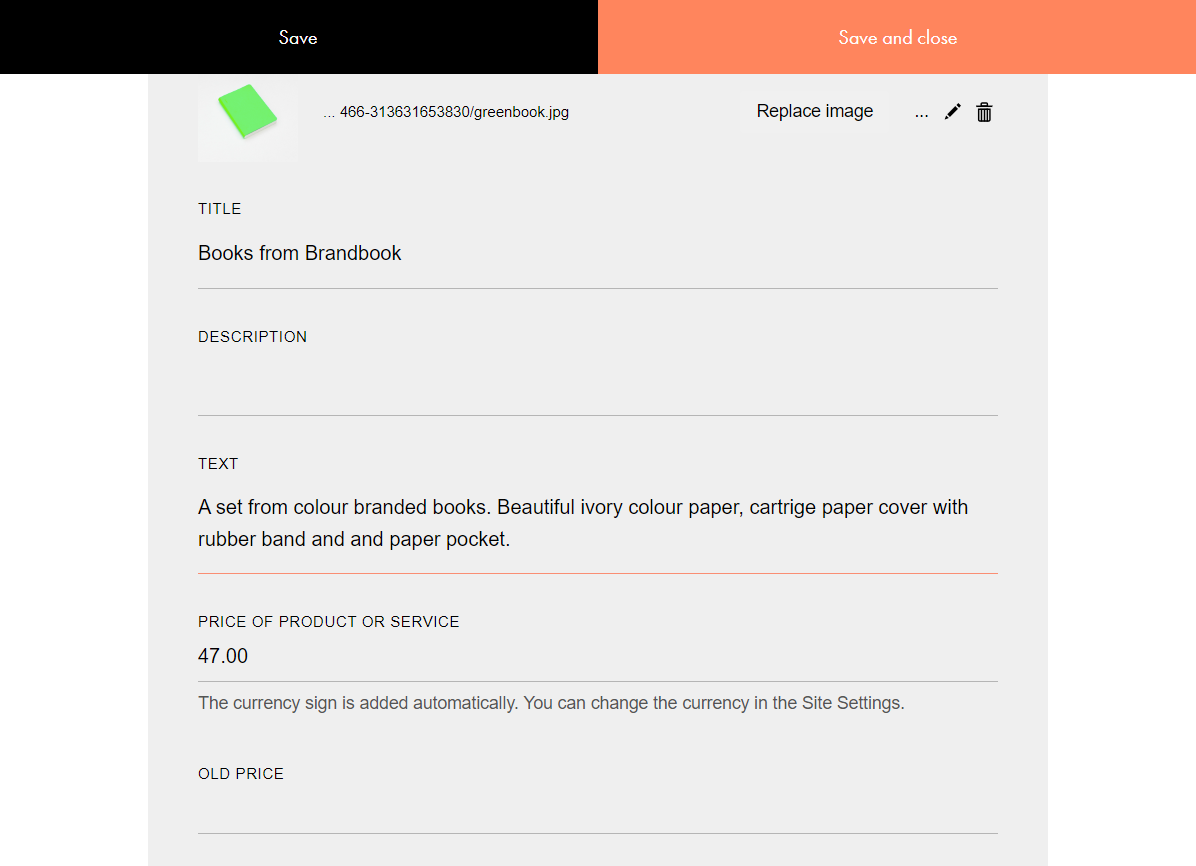
Instapage ecommerce features:
- Shopify integration
- Payment gateways such as Stripe and Paypal
Ecommerce themes & templates
Tilda allows users to build their eCommerce sites using around 20 ready-made online store templates, emphasizing ease of use and the ability to create a store without needing coding or web design skills. The platform focuses on providing a seamless online shopping experience, enabling features such as adding items to the cart, viewing product specifications, customizing additional services like delivery, and choosing payment methods. In contrast, Instapage does not have ecommerce specific templates.
Product page customization
Tilda enables a wide range of customizations for product pages in online stores, including the design, e-commerce functionalities, and integration with external services. Features like product variants, delivery options, promotional codes, and diverse payment system integrations allow for a personalized shopping experience. Additionally, Tilda offers content personalization to cater to different customer preferences and backgrounds, enhancing the overall user experience. However, Instapage does not have product page customization capabilities.
Payment processing
When it comes to payment processing, Tilda supports a variety of popular payment systems such as Stripe, PayPal, and 2Checkout, allowing for easy integration to accept online payments. Tilda does not impose additional transaction fees beyond those of the payment gateways themselves. On the other hand, Instapage supports payment gateway integration, notably through external systems and third-party services like Commence Payments for Stripe, facilitating various payment options such as Apple Pay, Google Pay, and card payments. The platform itself does not directly charge commissions for transactions, but payment gateways may have their own fees.
Website Editors
Website EditorsEvaluates the platforms’ website building and editing capabilities.Score Components:
- Customization tools (40%): Range and power of editing features.
- Editor usability (30%): User experience within the editor.
- Design flexibility (20%): Freedom in layout and design changes.
- Update and maintenance ease (10%): Simplicity of updating and maintaining the site.
 8.0
8.0
 7.5
7.5
🏆
Winner: Tilda
. Tilda, with a score of 8.0, offers a user-friendly, block-based design approach that simplifies the process of creating websites without requiring in-depth coding knowledge. It features advanced customization options through its Zero Block feature, allowing for detailed control over design elements for those needing more specific layouts. The platform supports responsive design, ensuring websites are optimized for all devices, and includes built-in SEO tools, analytics, and a range of integrations with third-party services for extended functionality.
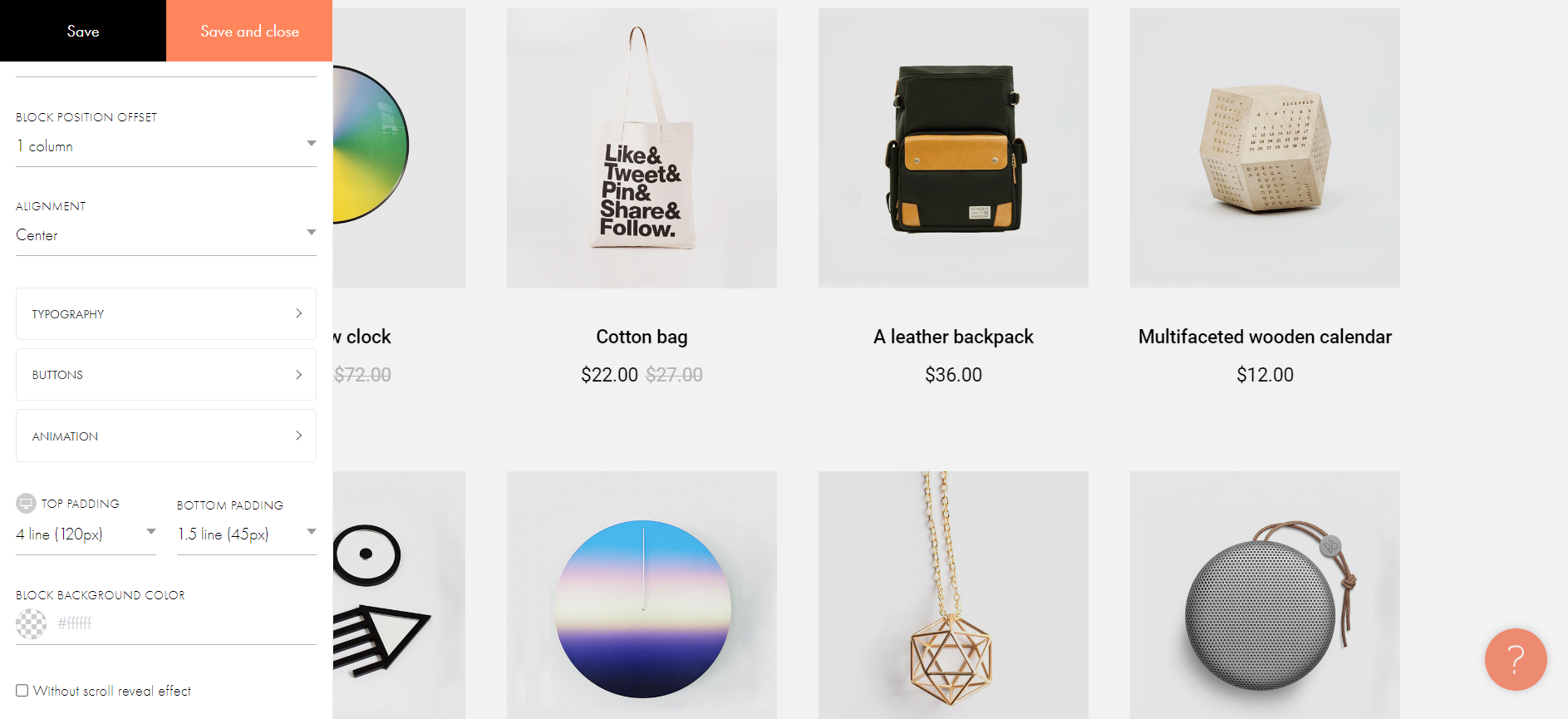
Instapage, scoring 7.5, is a comprehensive website builder focused on creating and optimizing landing pages for various marketing campaigns. It offers a drag-and-drop editor, AI content generation, detailed analytics, and extensive customization through custom code editing, alongside security and compliance features. The platform supports collaboration, integrates with numerous marketing tools, and is designed to streamline the process of building, testing, and optimizing landing pages to increase conversions.
Mobile editor/app
 5.5
5.5
 0
0
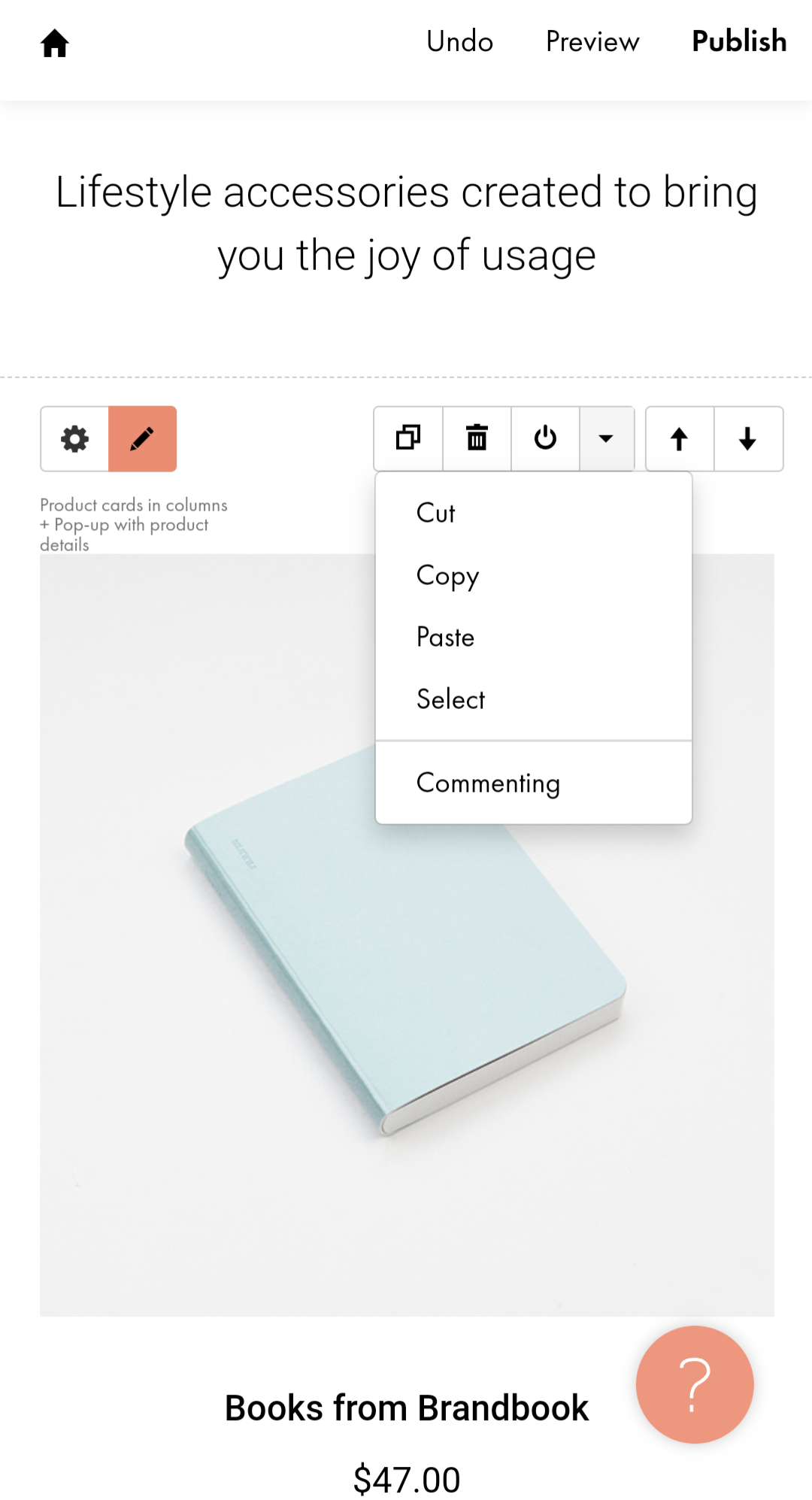
🏆
Winner: Tilda
. When it comes to mobile editing capabilities, Tilda and Instapage have different approaches. Tilda allows users to manage and edit their websites using the mobile browser version of its editor. This feature provides flexibility for on-the-go adjustments, although it may not be as seamless as a dedicated mobile app.
Instapage, on the other hand, does not offer a dedicated mobile editor app, which limits its usability for users who need to make quick changes or manage their landing pages from mobile devices.
In summary, Tilda receives a higher rating due to its mobile browser editing capabilities, while Instapage lacks a dedicated mobile editor, making Tilda the better option for mobile editing needs.
Product testing options
Product Testing OptionsAssesses the options for trying out platform features before commitment.Score Components:
- Trial quality (40%): Extent and usefulness of the trial or free version.
- Feature accessibility (30%): How many features are available to test.
- Trial duration (20%): Length of the trial period.
- Ease of transition (10%): Smoothness of moving from trial to paid plans.
 5.9
5.9
 6.1
6.1
Overall Result
:
Instapage Wins
. Instapage scores slightly higher than Tilda with a score of 6.1 against Tilda’s 5.9. While Tilda offers a free version with some premium features available for testing, it does not provide a trial version or a money-back guarantee. Instapage, on the other hand, does not have a free version but offers a 14-day free trial where users can test premium features. However, users are required to fill in their payment information for the trial, and they may be charged automatically if they do not cancel by the end of the trial period. Instapage also offers a 24-hour money-back guarantee.

|

|
|
|---|---|---|
|
Free Plan |
Yes |
No |
|
Trial Duration |
No |
14 days (Requires payment information) |
|
Testing Premium Features |
Some features with free plan |
During the free trial |
|
Money Back Guarantee |
No |
24 hours |
Price
PriceLooks at the cost-effectiveness and value for money of each platform.Score Components:
- Plan value (40%): What each pricing tier offers.
- Transparency and clarity (30%): Clearness of pricing structures.
- Flexibility of plans (20%): Range of options to suit different budgets.
- Hidden costs (10%): Additional expenses not included in the plan.
 8.0
8.0
 7.0
7.0
Tilda offers more affordable plans compared to Instapage, which has a higher starting price but offers a customized enterprise-level solution.

|

|
|
|---|---|---|
|
Free |
Free ($0/month): Tilda’s Free plan allows for 1 website with up to 50 pages per website and 50 MB of space per project. It includes a free subdomain on tilda.ws, responsive design on all devices, basic animations, a built-in image and icon library, and Tilda CRM. |
No offering at this amount. |
|
$10-$20 |
Personal ($15/month): The Personal plan offers 1 website with up to 500 pages and 1 GB of space. It includes all features of the Free plan plus the ability to connect a custom domain, advanced animations, full access to the Block Library, analytics, SEO tools, and online store capabilities. Value for Price: 7.5 |
No offering at this amount. |
|
$20-$30 |
Business ($25/month): The Business plan expands capabilities to 5 websites per account, each with up to 500 pages and 1 GB of space, including source code export and API access. It builds upon the Personal plan features with additions suitable for more extensive business needs. Value for Price: 9.0 |
No offering at this amount. |
|
$200+ |
No offering at this amount. |
BUILD ($299/month): Optimize conversions with experimentation and lead generation. Includes #1 Landing page builder, No Conversion Limits, Server-Side A/B Testing, AI Content, Unlimited Triggered Popups, Thor Render Engine, Dynamic Text Replacement, SSL Encryption, GDPR Compliance, Google SSO, Zapier, HubSpot, Salesforce, Marketo Integration, Multi-Step Forms, Invisible reCAPTCHA, and more. Value for Price: 7.5 |
location. As a result in rare cases the prices displayed here can differ from the ones you see on their
websites.
Hosting quality
Hosting
qualityExamines the reliability and performance of the hosting solutions.Score Components:
- Uptime (40%): Consistency and reliability of website availability.
- Speed (30%): Loading times and performance.
- Bandwidth and storage (20%): Sufficiency of resources provided.
- Data centers (10%): Quality and distribution of hosting infrastructure.
 6.2
6.2
 6.0
6.0
🏆
Winner: Tilda
Both Tilda and Instapage offer cloud hosting with a 99.9% uptime. However, Tilda edges out Instapage with a slightly higher hosting quality score. It’s important to note that while Instapage provides an uptime guarantee, Tilda does not. Neither builder discloses the locations of their data centers.

|

|
|
|---|---|---|
|
Do they offer hosting? |
Yes, cloud hosting |
Yes, cloud hosting |
|
Data Centers: |
Not disclosed |
Not disclosed |
|
Type of hosting: |
Cloud Hosting |
Cloud Hosting |
|
Uptime: |
99.9% |
99.9% |
|
Uptime Guarantee: |
No |
Yes, 99.9% |
Website Speed Optimization
Website Speed OptimizationEvaluates optimization of website loading timesScore Components:
- PageSpeed Score (30%): Google’s score indicating performance optimization.
- Loading Time (30%): The average time until a website is fully interactive.
- Mobile Optimization (15%): Optimization effectiveness for mobile devices.
- Resource Optimization (15%): Optimizing images, scripts, and other heavy resources.
- CDN Usage (10%): Use of CDN to enhance speed across geolocations.
 4.9
4.9
 6.2
6.2
🏆 Winner: Instapage
Both Tilda and Instapage prioritize website speed optimization, but Instapage has a slight edge due to its comprehensive strategies for speed optimization.

|

|
|
|---|---|---|
|
Focus |
Lazy Loading, Image Optimization |
Responsive design, Image optimization, Caching |
|
Performance Tools |
Not specified |
Not specified |
|
Key Strategies |
Lazy Loading, Image Optimization |
Responsive design, Image optimization, Caching |
|
Load Times |
Varies depending on optimization and website complexity |
Varies depending on optimization |
|
Page Speed Scores Range |
Not specified |
Not specified |
|
Core Web Vitals Improvement |
Not specified |
Not specified |
Tilda, a web-based platform designed for creating websites, landing pages, and online stores, focuses on lazy loading and image optimization as its key strategies for speed optimization. However, it does not provide specific information on load times, PageSpeed score ranges, or Core Web Vital improvements.
On the other hand, Instapage, a comprehensive landing page platform, employs a more holistic approach to speed optimization. It focuses on responsive design, image optimization, and caching as its key strategies. Like Tilda, Instapage does not provide specific information on load times, PageSpeed score ranges, or Core Web Vital improvements. However, its comprehensive approach to speed optimization gives it a slight edge over Tilda.
Get a head start on website creation with AI
Create a custom website tailored to your business needs 10X faster with 10Web AI Website Builder!
Plugins and integrations
Plugins and integrationsMeasures the range and effectiveness of additional plugins and integrations.Score Components:
- Variety of options (40%): Range of available add-ons.
- Integration smoothness (30%): Ease of integrating plugins into the site.
- Quality of plugins (20%): Functionality and reliability of the options.
- Custom integration capabilities (10%): Support for custom or third-party integrations.
 7.6
7.6
 6.8
6.8
🏆 Winner: Tilda.
Tilda scores 7.6, offering a diverse range of integrations that enhance the functionality of websites created on its platform. It supports popular payment processors, integrates with various form services, and connects with Google Analytics and Google Tag Manager for in-depth website analytics. Instapage, with a score of 6.8, also supports over 40 integrations with third-party platforms, including major CRM, email marketing, analytics, and advertising tools. However, Tilda’s wider range of integrations gives it the edge in this category.
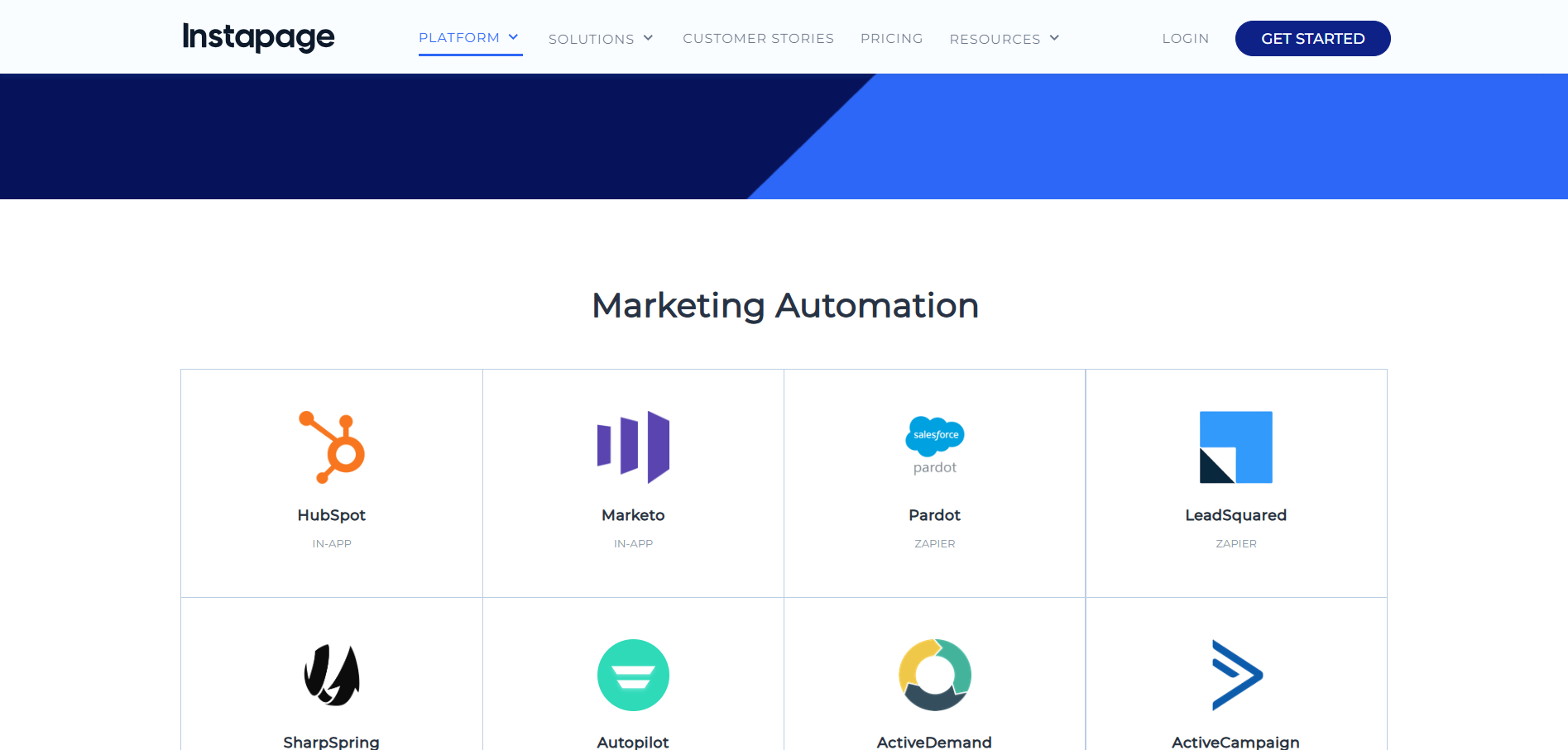
Marketing Features
Design FunctionalitiesRepresents how well each platform allows for creative design and customization of websites.Score Components:
- Template Variety (30%): Range and quality of design templates.
- Customization (30%): Flexibility and options for design alterations.
- User Interface (20%): Ease and intuitiveness of the design process.
- Responsiveness (10%): Adaptability to different devices and screen sizes.
- Innovation (10%): Unique design features and tools.
 6.9
6.9
 7.7
7.7
🏆
Overall Winner: Instapage
. Instapage stands out for its comprehensive landing page optimization tools, including AI content generation, targeted messaging, and data-backed insights for optimization. Tilda, while offering a range of marketing features, lacks in the area of ads and promotions.

|

|
|
|---|---|---|
|
SEO Tools |
✓ |
✓ |
|
Email Marketing |
✓ |
✓ |
|
Blogging |
✓ |
✗ |
|
Social Media Integration |
✓ |
✓ |
|
Analytics and Reporting |
Yes, through integration of Google Analytics |
Yes, including conversion analytics, real-time reports, and A/B testing. |
|
Ads and Promotions |
✗ |
Yes, with features like AdMap for ad-to-page personalization and integration with advertising platforms. |
Customer Support
Customer supportEvaluates the quality and availability of support options.Score Components:
- Response time (40%): Speed of support responses.
- Support quality (30%): Effectiveness and helpfulness of the support.
- Availability (20%): Range of support channels (phone, chat, email).
- Resource richness (10%): Quality of self-help and educational materials.
 5.5
5.5
 7.6
7.6
🏆 Winner: Instapage
. Comparing Tilda vs Instapage, Instapage takes the lead in this category with a customer support score of 7.6. Instapage offers live chat support available 24 hours a day from Monday to Friday, along with email and toll-free phone support during regular business hours. This comprehensive support system ensures that users can get timely assistance for any issues they encounter. Additionally, Instapage provides personalized assistance for enterprise users through Success Managers and Launch Specialists, enhancing the overall support experience.
Tilda, on the other hand, has a customer support score of 5.5 and primarily offers support via email. The platform encourages users to utilize the extensive articles and tutorials available in Tilda’s Help Center for self-help. However, the lack of specified support hours and limited support channels may leave users wanting more immediate and diverse support options.
Security
SecurityLooks at the platforms’ security measures and data protection.Score Components:
- Data protection (40%): Safeguards for user and customer data.
- SSL and encryption (30%): Implementation of secure connections.
- Compliance (20%): Adherence to industry security standards.
- Regular updates (10%): Frequency of security updates and patches.
 7.6
7.6
 8.4
8.4
🏆
Winner: Instapage
. Instapage has a higher security score and offers a comprehensive set of security measures, including SOC 2 Type I and Type II compliance, risk management policies, and a strong focus on privacy, aligning with GDPR and CCPA regulations. Their Information Security Program is based on ISO 27001/2 and NIST 800-53 frameworks, covering multiple aspects of security from asset management to incident response. Physical, access, and network security protocols are rigorously enforced, alongside SSL/HTTPS support for all landing pages to ensure secure client data handling and privacy.
Tilda also provides a range of security measures, including GDPR compliance features, DDoS prevention, and HTTPS encryption. However, it falls slightly short in comparison to the extensive security measures provided by Instapage.
AI Capabilities
AI capabilitiesMeasures the effectiveness of AI-driven features and tools.Score Components:
- Automation efficiency (40%): Impact of AI on streamlining processes.
- Personalization (30%): AI-driven customization for users or customers.
- AI-Assisted design (20%): Role of AI in website design and functionality.
- Data analysis (10%): Use of AI in interpreting user data and analytics.
 2.1
2.1
 6.0
6.0

|

|
|
|---|---|---|
|
AI Builder |
Tilda does not have an AI website builder |
Instapage does not have an AI builder |
|
AI Ecommerce features |
Tilda does not have any AI ecommerce features |
Instapage does not have AI ecommerce features |
|
AI Content Generation |
Tilda has an AI feature for generating website content |
Instapage has an AI Content Generator for landing page creation |
|
Additional AI features |
Tilda does not have other AI features apart from text generation |
Instapage has AI Experiments for dynamic traffic allocation |
🏆 Winner: Instapage
. Despite both platforms lacking an AI builder and AI ecommerce features, Instapage’s AI capabilities are more comprehensive than Tilda’s. Instapage’s AI Content Generator and AI Experiments provide more functionality and flexibility for users, earning it a higher AI capabilities score of 6.0 compared to Tilda’s 2.1.
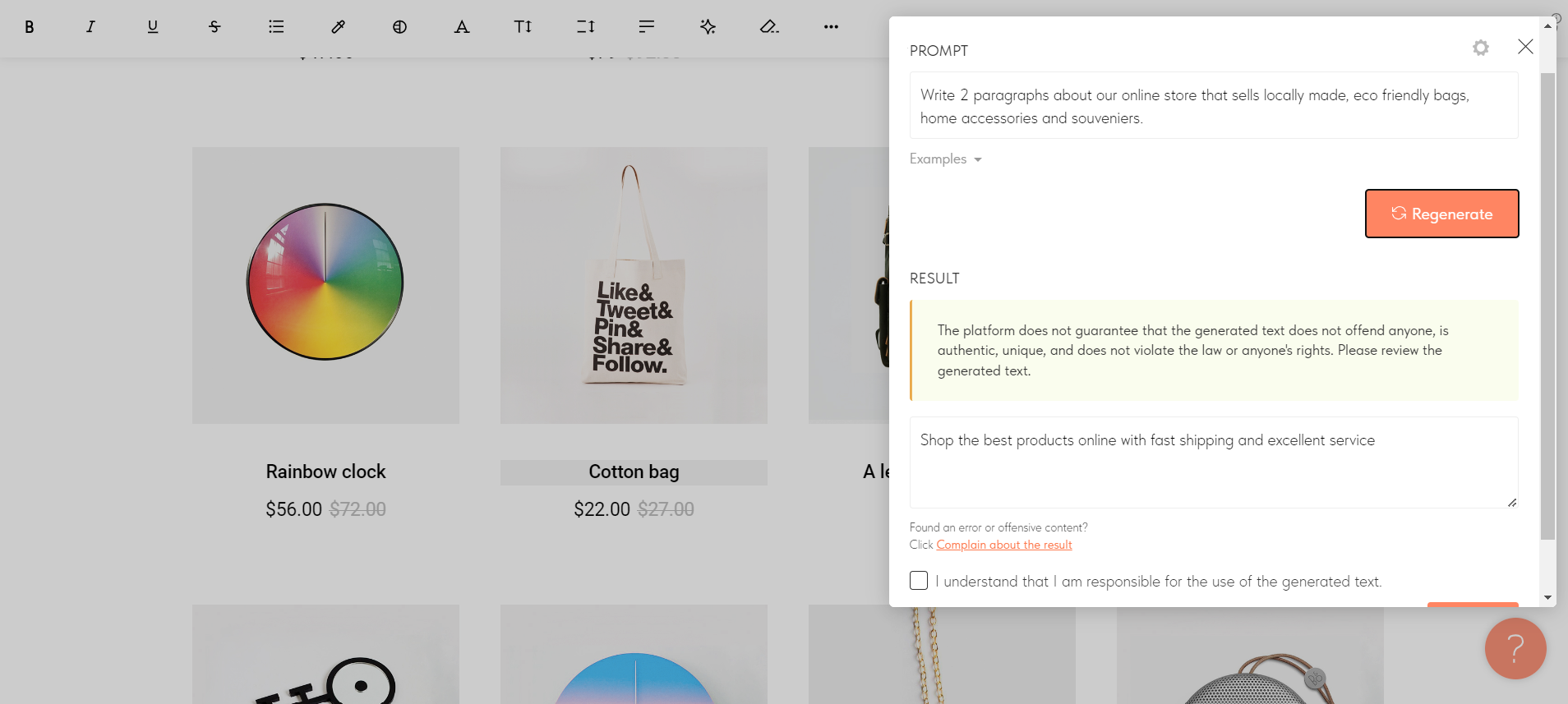
User Management
User ManagementAssesses the platforms’ capabilities in managing user roles, permissions, and accessibility.Score Components:
- Role Customization (40%): Flexibility in creating and defining user roles and
permissions. - Ease of Management (30%): User interface and tools for managing users.
- Access Control (20%): Effectiveness of access control measures for different user
levels. - Scalability (10%): Ability to manage a growing number of users efficiently.
 7.3
7.3
 7.3
7.3
🏆 Winner: Tie
. Both Tilda and Instapage scored 7.3 in user management, indicating similar capabilities in this area.
- Tilda’s Collaborators feature allows adding teammates with either Full or Limited access. Full access enables collaborators to edit, publish, delete pages, view requests and statistics, and make changes to built-in website services. Limited access allows the project owner to specify what actions the collaborator can perform. This feature is available as a premium offering, and adding more collaborators requires additional payment, with costs adjusted based on previously paid periods. It applies to the entire account, not individual projects, and collaborators can be managed or replaced through the Site Settings.
- On Instapage, users managing a website can be assigned different roles: Viewer, Editor, or Manager. A Viewer has limited access, only able to view pages. An Editor can edit pages, and a Manager has full access except for billing information and the audit log. The number of users you can invite depends on your subscription limits. However, only one user can edit a page at a time to prevent overwrite issues.
Instapage User Roles and Access Levels:
| Role | Description | Access Highlights |
|---|---|---|
| Administrator | Oversees the entire Instapage account, managing users, settings, and billing information. | Full access to all features, including user management, settings, billing, and page creation and editing. |
| Editor | Works on creating and editing landing pages, responsible for the design and content. | Can create and edit pages, manage integrations, and view analytics, but cannot change account settings or manage users. |
| Viewer | Has view-only access to the landing pages, typically for review or analytics purposes. | Can view pages and analytics but cannot make any edits or access account settings. |
Additional Features

|

|
|
|---|---|---|
|
SSL Certificate |
✓ |
✓ |
|
Custom Domain |
✓ |
✓ |
|
Free Custom Domain Included |
X |
X |
|
International Domains |
✓ |
✓ |
|
Mobile Responsive |
✓ |
✓ |
|
Page Speed |
✓ |
✓ |
|
Website Builder Mobile App |
X |
X |
|
Convert a Website To An App |
X |
X |
|
Website Analytics |
✓ |
✓ |
|
Multilingual Sites |
✓ |
✓ |
|
Multiple Users |
✓ |
✓ |
User Feedback
Tilda Publishing receives varied feedback from users, highlighting its strengths in offering a no-code, customizable website building experience with features like Zero Block for personalization and easy backend setup. Users appreciate its affordability, user-friendly interface, and responsive customer support. However, criticisms include buggy font customization, limited design elements, and instability in some of its features. Despite these drawbacks, many find Tilda beneficial for creating professional websites quickly and managing multiple sites under one plan, although some users advise caution due to issues with stability and customer support.
Users generally appreciate Instapage for its user-friendly interface, robust customer support, and seamless integration capabilities, highlighting its effectiveness in creating high-quality, high-converting landing pages optimized for lead capture. Positive feedback emphasizes the platform’s ease of use, allowing both experienced marketers and newcomers to quickly design and deploy landing pages, along with its broad range of integrations with other marketing tools and CRM systems. However, some users encounter challenges with mobile responsiveness, custom domain settings, and occasional bugs.
The making of this blog
We followed a clear, step-by-step process to write and research this article.
FAQ
Which platform is better for beginners, Tilda or Instapage?
Can I use both Tilda and Instapage for ecommerce?
How do Tilda and Instapage differ in terms of customization and design flexibility?
What are the major differences in pricing between Tilda and Instapage?










